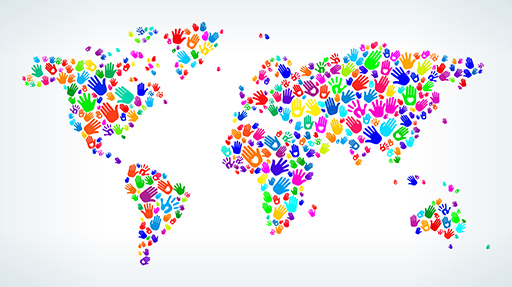8 The global picture
To end this week, you will read a statement from the UN, who highlighted why it is vital to remain focused on personal, real lives when thinking about the changing, global picture.
The Executive Director of the UN Population Fund (UNFPA) underscored some of the challenges in an expanding global community, including in promoting the rights and health of 7 billion women, men and children.
‘We must ensure that, in areas of the world where population is growing fast, we raise the status of women and young girls to be able to access education and make choices for themselves,’ Babatunde Osotimehin said at the gathering.
‘We also owe it to the 215 million women worldwide who require family planning and are not getting it to make it available,’ he said, adding it is also necessary to ensure safe pregnancy and delivery for every woman that wants to give birth.
At the same time, he highlighted the need to give ageing populations in many parts of the world a life of dignity, and to tackle the rapid urbanization and migration which many countries have to face.
The UN human rights chief also marked the occasion, stating that the 7 billionth child is, by virtue of her or his birth, a permanent holder of rights, with an ‘irrevocable’ claim to freedom. ‘But she or he will also be born into a world where some people, given the chance, will trample on those rights and freedoms in the name of state security, or economic policy, or group chauvinism,’ High Commissioner for Human Rights Navi Pillay said in a statement.
‘If she was born a girl, she will have fewer choices. If born in the developing world, she or he will have fewer opportunities. If born a descendant of Africans in a non-African country, or as an indigenous person, member of a religious minority, or as a Roma, she or he is likely to face discrimination and marginalization, with a childhood rife with vulnerability, and a future adult life hedged in by exclusion.
‘But he or she has also been born at a time of great hope,’ Ms. Pillay added, noting that the demonstrations and mobilizations of civil society seen in 2011 in a sense ‘provide a birthday celebration for the 7 billionth person on this planet, and also serve as a warning to those who might be inclined to deprive this child, like many others, of his or her birthrights.’

